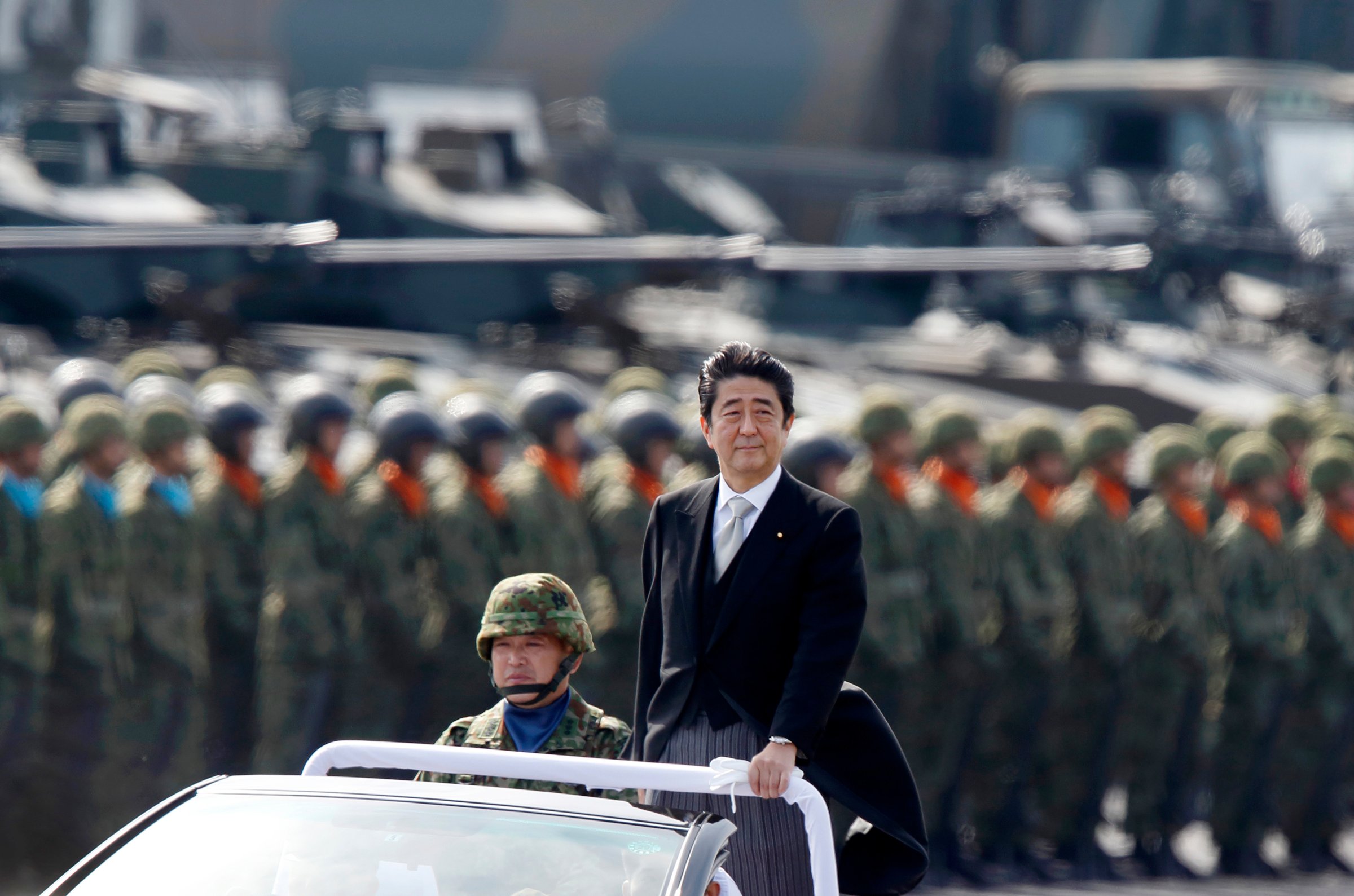
Japanese Prime Minister Shinzō Abe plans to revise the country’s pacifist constitution within the next three years, aiming to articulate the role of the country’s military amid a rise in regional tensions.
Abe’s announcement, made via video address to an audience marking the charter’s 70th anniversary, was the first time the prime minister had laid out a timeline for the controversial amendments he has sought throughout his term, the Financial Times reports.
Up for revision is the charter’s Article 9, also known as the “peace clause,” which calls for the complete renunciation of war and precludes the maintenance of land, sea and air forces. The Japanese military, with more than 227,000 active troops, has existed for decades under various interpretations of the clause as Self-Defense Forces.
Abe, a conservative, has long argued for adapting the legal status of the armed forces to suit modern security concerns, particularly the threat of North Korean aggression. According to the FT, Abe said in his address that there should be “no room for debate” on the legality of maintaining forces.
In 2015, Abe spearheaded controversial security legislation expanding the role of the military. The new laws, which came into effect last year, were first utilized early this week when Japan dispatched its biggest warship to escort an American supply vessel. The new rules allow Japanese forces to protect allies’ assets; prior policies limited them to domestic guardianship.
Read More: Japanese Warship to Guard U.S. Naval Assets as New Security Powers Take Effect
With a two-thirds majority of the legislature held by Abe’s ruling party and his coalition partners, experts believe he will be able to pass amendments, the New York Times reports. Once passed, however, the changes would have to survive a popular referendum, which could prove more difficult.
Many Japanese support the country’s principle of pacifism, and Abe has faced steadfast criticism for what many see as his hawkish policies. According to the Times, a survey carried out just last week found that 82% of respondents supported the current constitution, while another poll showed public opinion split on revisions.
More Must-Reads From TIME
- The 100 Most Influential People of 2024
- Coco Gauff Is Playing for Herself Now
- Scenes From Pro-Palestinian Encampments Across U.S. Universities
- 6 Compliments That Land Every Time
- If You're Dating Right Now , You're Brave: Column
- The AI That Could Heal a Divided Internet
- Fallout Is a Brilliant Model for the Future of Video Game Adaptations
- Want Weekly Recs on What to Watch, Read, and More? Sign Up for Worth Your Time
Contact us at letters@time.com